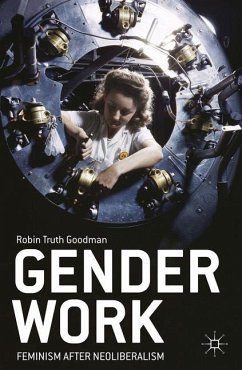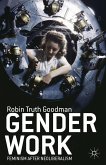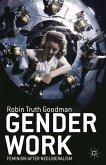Recently, labor has acquired a re-emergent public relevance. In response, feminist theory urgently needs to reconsider the relationship between labor and gender. This book builds a theoretically-informed politics about changes in the gendered structure of labor by analyzing how the symbolic power of gender is put in the service of neoliberal practices. Goodman traces the cultural contextualization of 'women's work' from its Marxist roots to its current practices. From the income gap to the gendering of industries, Goodman explores and critiques the rise of corporate power under neoliberalism and the ways and whys that femininity has become one of its principle commodities.
"This book marks a path-breaking turn in feminist theory, where feminism illuminates the transfigured conditions of contemporary global society under neoliberalism. Goodman brilliantly restores the primacy of labor and class to feminist theory, political analysis, and social agency alike. Her riveting analyses recasts culture and everyday life as they reframe the capital flows of globalization. What results is extraordinary: an urgent, timely, and truly global feminist theory of how women's work changes the world." - Jennifer Wicke, Professor of English and Comparative Literature, University of Virginia, USA
"Why are women's labor, time, and sociality more and more central to the workings of capitalism? Goodman's tour de force analysis of feminist and Marxian writings provides a variety of persuasive answers. Her book will be indispensable to a wide range of readers who want the most up-to-date thinking on this topic." - Andrew Ross, Professor of Social and Cultural Analysis, New York University, USA
"Why are women's labor, time, and sociality more and more central to the workings of capitalism? Goodman's tour de force analysis of feminist and Marxian writings provides a variety of persuasive answers. Her book will be indispensable to a wide range of readers who want the most up-to-date thinking on this topic." - Andrew Ross, Professor of Social and Cultural Analysis, New York University, USA








